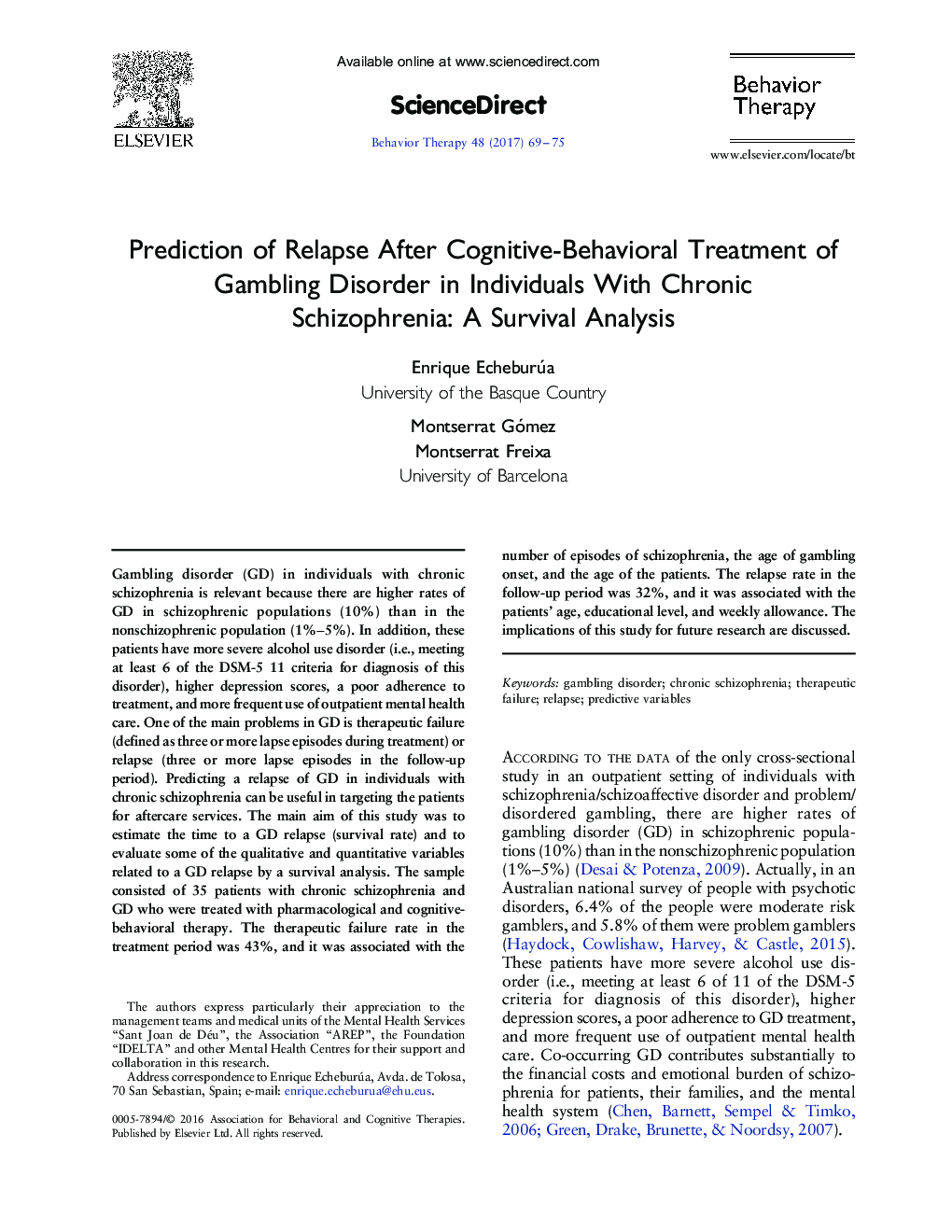| کد مقاله | کد نشریه | سال انتشار | مقاله انگلیسی | نسخه تمام متن |
|---|---|---|---|---|
| 5038081 | 1370248 | 2017 | 7 صفحه PDF | دانلود رایگان |

- Gambling disorder in individuals with chronic schizophrenia is a neglected topic.
- This study examines the predictive variables of relapse after CBT in these patients.
- CBT has proven cost-effective as adjunctive therapy for these patients.
- Age, number of psychotic episodes and gambling onset were predictive of failure (43%)
- Age, education and weekly allowance were associated with the relapse rate (32%).
Gambling disorder (GD) in individuals with chronic schizophrenia is relevant because there are higher rates of GD in schizophrenic populations (10%) than in the nonschizophrenic population (1%-5%). In addition, these patients have more severe alcohol use disorder (i.e., meeting at least 6 of the DSM-5 11 criteria for diagnosis of this disorder), higher depression scores, a poor adherence to treatment, and more frequent use of outpatient mental health care. One of the main problems in GD is therapeutic failure (defined as three or more lapse episodes during treatment) or relapse (three or more lapse episodes in the follow-up period). Predicting a relapse of GD in individuals with chronic schizophrenia can be useful in targeting the patients for aftercare services. The main aim of this study was to estimate the time to a GD relapse (survival rate) and to evaluate some of the qualitative and quantitative variables related to a GD relapse by a survival analysis. The sample consisted of 35 patients with chronic schizophrenia and GD who were treated with pharmacological and cognitive-behavioral therapy. The therapeutic failure rate in the treatment period was 43%, and it was associated with the number of episodes of schizophrenia, the age of gambling onset, and the age of the patients. The relapse rate in the follow-up period was 32%, and it was associated with the patients' age, educational level, and weekly allowance. The implications of this study for future research are discussed.
Journal: Behavior Therapy - Volume 48, Issue 1, January 2017, Pages 69-75